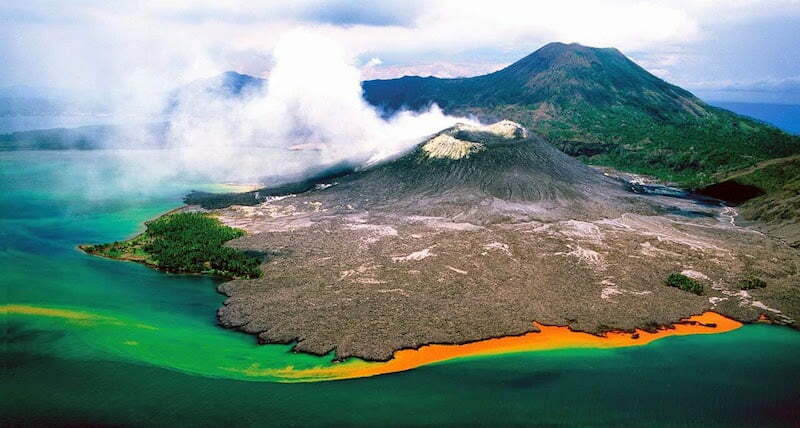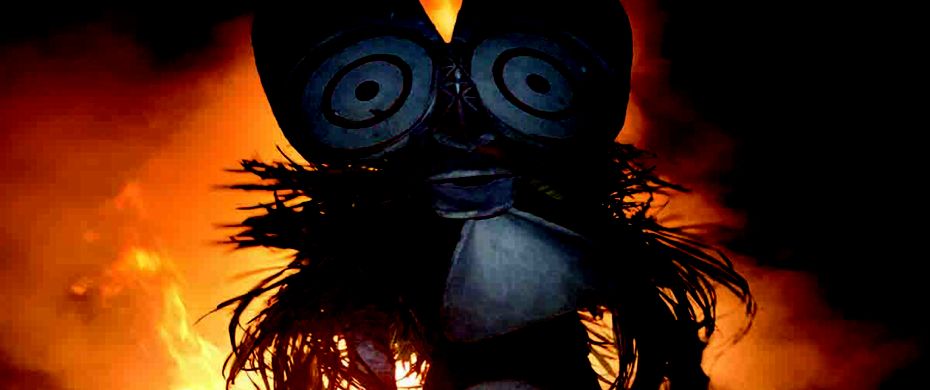Are you hoping to go off the beaten track yet have a luxury holiday without giving up any of the comforts of home? Papua New Guinea is one of the few destinations on Earth when you can truly travel your own path.
Rabaul is is just a small part of this amazing, yet largely undiscovered, archipelago. Rabaul is most famous for it’s huge volcanic eruptions in 1994 but it’s people, culture and traditional way of life are at the heart of the attraction of visiting here. Rabaul offers incredible scuba diving, snorkeling and scenery as well as vibrant culture and history.

The “Tolai” are the indigenous people to the Rabaul area and they are ethnically close kin to the peoples of adjacent New Ireland and are thought to have migrated to the Gazelle Peninsula in relatively recent times, displacing the Baining people who were driven westwards. Tolai’s have a “secret society” known as “Duk-Duk” which represents a law and order through its presiding spirits.


In ritual dances, members of the society invoke the male spirit duk duk and female spirit tubuan depending on which mask the dancer wears. The dancers are always male despite the fact that some are performing the role of female spirits. Women and children were forbidden to look at these figures and only men can join the Duk-Duk.


Both types of mask are cone-shaped and are constructed of cane and fibre, with short, bushy capes of leaves. Traditionally the duk duk is taller than the tubuan and was faceless. The tubuan had circular eyes and a crescent-shaped mouth painted on a dark background. In addition to the mask, leaves cover the torso of the dancers so that only their legs are visible – it’s one of the most unusual tribal dresses in Papua New Guinea.


The society has its secret signs and rituals, and festivals which were in past times closed to strangers on pain of death. Duk-Duk only appeared with the full moon. Justice was executed, fines extorted, taboos, feasts, taxes and all tribal matters arranged by the Duk-Duk members, wearing masks or chalk on their faces. In carrying out punishments, they were allowed to burn houses and even kill people. Dancers wearing the tubuan masks were regarded as divine beings whose judgment and actions could not be questioned. The society’s practice has been dying out since around the start of the 20th century but in certain parts of Rabaul it still presides and in other regions, the dances are carried out in a traditional format.


Watching the Duk Duk dance is one of the highlights of this region – and the dances and costumes are like nothing else on earth. It’s a dance seen by the only a few discerning travelers who venture to this remote region of Papua New Guinea.
During El Aleph cruises through Papua New Guinea you’ll be able to explore pristine coral reefs through scuba diving or snorkeling, make use of our range of on board water sports equipment which includes sea kayaks, paddle and surf boards, do-nut ring and tenders.


The landscapes of Rabaul, combined with the unique people, culture and way of life make this an unforgettable cruise through some of the most unexplored regions on earth.
For more detailed information about El Aleph, view our full vessel specifications.
To enquire about our rates and availability or to book your Papua New Guinea voyage of discovery on board El Aleph please contact us.
Please note that to ensure your privacy and an exclusive experience we only offer full charters and do not take bookings for individual cabins.


